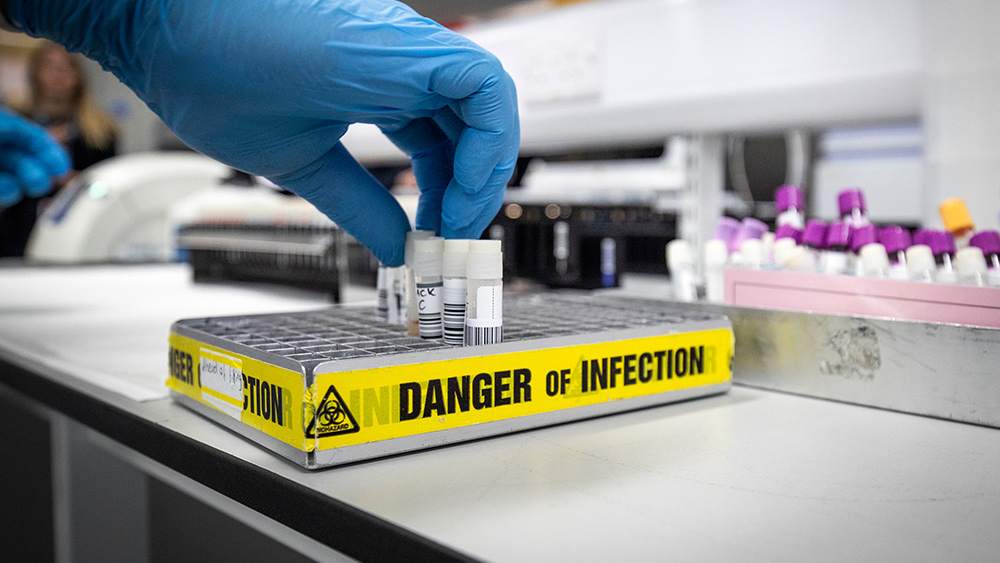
Mike Adams and book author Richard Fleming talk about innate immunity and the Wuhan coronavirus (COVID-19) vaccines in the "Health Ranger Report with Mike Adams" on Brighteon.TV.
Innate immunity is the body's first line of defense against pathogens. It involves barriers that keep harmful materials from entering your body. These barriers form the first line of defense in the immune response. "Don't we have to actually use the immune system like it's designed?" Fleming asks.
He explains that the vaccines do not actually help people by blunting and reprogramming the immune system.
"These vaccines that are being used have done something that we have never done before, and it's not usually the things that people focus on. Normally, what we do with the virus is that we take all of the viruses and all the variants and parts of the virus, weaken it and inject it in trying to get an immune response. That's not what we did this time," says Fleming.
Adams has noted that the vaccines help "create the illusion of immunity, but not legitimate immune responses."
Innate immunity keeps children safe from COVID-19
If a virus can disarm the innate immune response, it gains an advantage as it can reproduce fast and infect others before the immune system kick-start in the body.
The COVID-19 virus can spread from one person to another without any obvious symptoms, and studies show that asymptomatic transmissions are the primary mode of transmission of COVID-19, making up more than half of all infections.
The concentration of the virus peaks well before people feel ill. Most of the infections take place when the virus is actively suppressing innate immune responses by inhibiting interferons and interferon-stimulated genes. Once innate immunity kicks in, viral concentrations fall, as does the transmission.
One of the reasons children have a much lower COVID-19 infection rate is because their innate immune system is more active due to early and robust interferon synthesis that induces broad viral protection. Older people, on the other hand, may suffer more serious consequences because of the declining activity of their innate immune system and the higher incidence of anti-interferon antibodies. (Related: Cardiologist warns about covid vaccine fraud and hyper-inflammatory immune responses caused by the shots.)
Natural immunity offers longer-lasting protection against COVID-19
After people recover from infection with a virus, the immune system retains a memory of it. Immune cells and proteins that circulate in the body can recognize and kill the pathogen if it’s encountered again, protecting against disease and reducing illness severity.
Studies have shown that people injected with COVID-19 vaccines are more likely to get infected with SARS-CoV-2 than people with natural immunity due to previous infection. The risk for the symptomatic disease increased significantly as well.
A study published on Jan. 6 in Science analyzed immune cells and antibodies from almost 200 people who had been exposed to SARS-CoV-2 and recovered.
Led by Drs. Daniela Weiskopf, Alessandro Sette and Shane Crotty from the La Jolla Institute for Immunology, the study was funded in part by the National Institute of Allergy and Infectious Diseases (NIAID) and the National Cancer Institute (NCI).
The researchers found durable immune responses in the majority of people studied. Antibodies against the spike protein of SARS-CoV-2 were found in 98 percent of participants one month after symptom onset. As seen in previous studies, the number of antibodies ranged widely between individuals. But their levels remained fairly stable over time, declining only modestly at six to eight months after infection.
Another study demonstrates that natural immunity confers longer lasting and stronger protection against infection, symptomatic disease and hospitalization caused by the delta variant compared to two doses of COVID-19 vaccine.
Watch the Sept. 29 episode of the "Health Ranger Report with Mike Adams" here:
Catch more episodes of the "Health Ranger Report with Mike Adams" from Monday to Friday at 3-3:30 p.m. on Brighteon.TV.
Check out the latest news and updates related to the coronavirus pandemic at Pandemic.news.
Sources include:
Please contact us for more information.



















